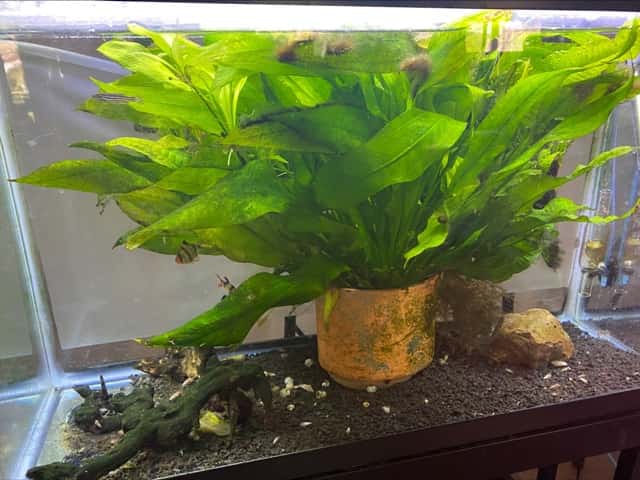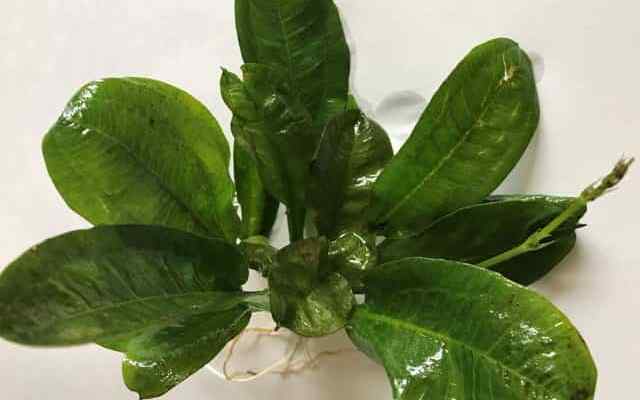Dying fish – 5 sure-fire fixes for sick fish

Here’s what really works on sick fish and why it probably won’t work for you, sorry. (Not sorry):
I’m going to be quite blunt here. None of the medications listed below will work for an average hobbyist. I never use medications anyway. The medications are listed as fluff for this part of the article.
For the average hobbyist your fish will die, even if you use the medications. You will replace the fish that die, and those fish will die. Eventually you will end up with an empty aquarium that you will put out in the garage. That will be the end of your fish aquarium days. The end.
Now, for the “more than a hobbyist” I will tell you how to really keep your fish alive and healthy. You can turn your aquarium into a show piece if that’s what you want. Want a tank full of huge, beautiful healthy discus? An aquarium filled with plants and healthy, spawning Cardinal Tetras? Do everything I am going to suggest.
Here is what I do and it really works. I’m not blowing smoke. I don’t have a personal agenda. Honestly, most of you will ignore my advice. I don’t really care if you do this or not. I just know how to keep fish healthy.
For my 30 gallon aquarium:
1. I do 100% water changes every week religiously. My water is community well water. It is very hard but has little or no nitrates. I heavily dose it with API Stress Coat plus to counter any added chlorine or chloramine.
2. I use a sump to super oxygenate the water. You’ll need to do research on this. It ain’t cheap and it ain’t easy to set up, but it works. This also increases the tank volume to 45 gallons.
3. I use two Fluval 207 cannister filters. I super clean the water constantly.
4. I use two stupidly expensive UV sterilizers that are always on to kill pathogens and parasites (good ones, not the cheap crap you see available). These are hooked up to the Fluval 207’s. They are on all the time.
5. I got rid of the gravel in the aquarium. This means there is no place for the pathogens and parasites to grow. This said, I do have plants in the tank in pots with some gravel. The UV lights kill what the gravel tries to hide. If I was keeping discus there would be no gravel (no plants) in the aquarium or the plants would float free.
That’s it.
Treat your aquarium like it was a public aquarium and you had to keep the fish healthy and they will be healthy.
Sincerely, “The Rude Aquarist”
Now on with the fluff…
What types of fish medications are available and what do they treat?
Even the most careful of experts have come across illness in their aquarium fish. So while prevention is essential to ensure the health and well-being of aquarium fish, every hobbyist must be ready to deal with fish medications and treatments for common afflictions.
There are common ingredients known as effective natural treatments for certain diseases—methylene blue, and malachite green are well known for their effectiveness against Ich, fungus, and velvet. Penicillin and tetracycline are effective against bacterial infections.
Commercial brands make use of these ingredients and blend them into become effective medications against these illnesses. Below are our suggestions.
Tetra Lifeguard All-in-One Treatment
Not all of us are experts at identifying diseases, and that is okay—that’s why we have general treatments.
Tetra Lifeguard All-in-One treatment provides broad coverage of the most common illnesses of freshwater fish by destroying damaging microorganisms during the early stages of the disease. It has a proven effect against fungal lesions, ick, flukes, fin rot, and others.
Best part? Since it is non-antibiotic, you can also use preventative dosages when introducing new species to your aquarium.
API GENERAL CURE
If Seachem ParaGuard is effective against external diseases, Api General Cure is a universal solution for most internal parasites.
While it has proven successful in the treatment of velvet, ich, gill & skin flukes, its starring role is in the fight against swollen abdomen, wasting disease, hexamita infection, and other internal diseases.
As its name shows, it’s a fantastic medication to own and apply in general cases—particularly when you don’t know the illness that is affecting your fish.
API PIMAFIX
Sometimes it’s hard to identify the particular disease that is damaging your fish. However, if you are confident you are facing a fungal infection—yet you are not sure which one specifically it’s a good idea to invest in PIMAFIX.
As a generic antifungal treatment, it is unparalleled. It provides general help against common fungal infections, and unless the condition worsens, it should be enough to heal your affected fish.
Hikari Usa Prazipro
A more specific medication, Prazipro contains praziquantel and oxybis propanol—active components against parasitic conditions such as flukes, flatworm, and tapeworm.
If you are convinced your fish are affected by these parasites, treat them with this medication. Remove carbon from your filters. and provide the suggested dosage for a week.
This product suppresses appetite on fish during treatment.
Be mindful before and after using a new medication.
Regardless of our advice or any positive reviews you may encounter online, each aquarium is different, and fish react in unpredictable ways to a new treatment. To be safe, check your fish for potential side-effects after providing the right dosage, and suspend use immediately if you notice strange behavior.
The Ultimate Guide to Bristlenose Plecostomus Fish: Care, Breeding, and More!
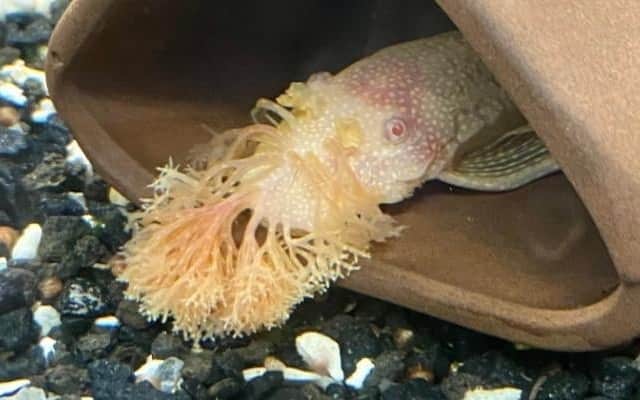
These bizarre looking fish look like they came from another, alien world. Don’t believe me? Check out the picture above.
The Best 5 Freshwater Aquarium Fish for Beginners in 2024
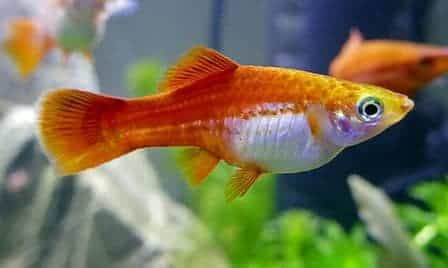
You can do the math; population control is a must. The bad news is that guppies rarely eat their offspring. You will want a predator fish, like an angelfish, in with your guppies to keep the numbers down.
Grow Your Own Live Fish Food – 4 Easy Types
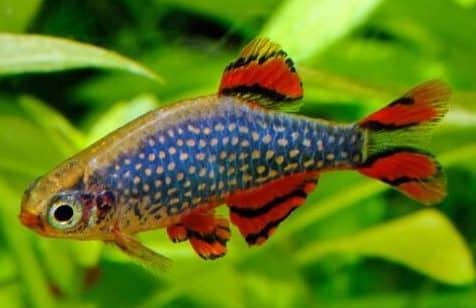
“To the container, add lettuce, spirulina, yeast or best, farm animal dung. Fill your container with conditioned water and your choice of the mentioned ingredients.”
Zebra Danio Care, Feeding and Breeding
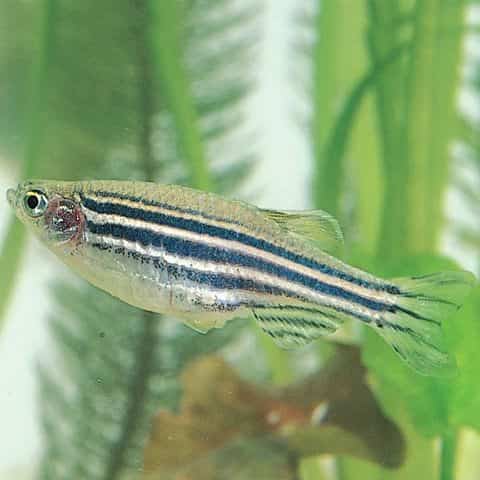
“It’s likely you either just bought some Zebra Danios or you’re going to buy some.
Good choice! They are playful, active, and enjoy interacting with each other. A strong plus is that they won’t harm their tank mates.”
How To Care For, Feed, And Make A Sandwich Out Of Your Adorable Goldfish
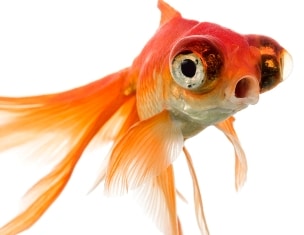
“Historical records suggest that the Chinese were the first people to breed and rear goldfish. They were first raised as food during the Jin Dynasty, between 265 AD and 420 AD….”



